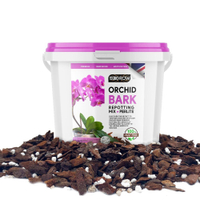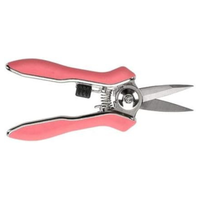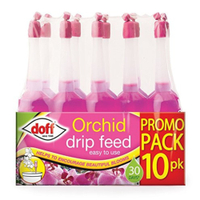The 5 things you should never do when caring for an orchid
Houseplant experts warn against these 5 common mistakes when caring for your orchid
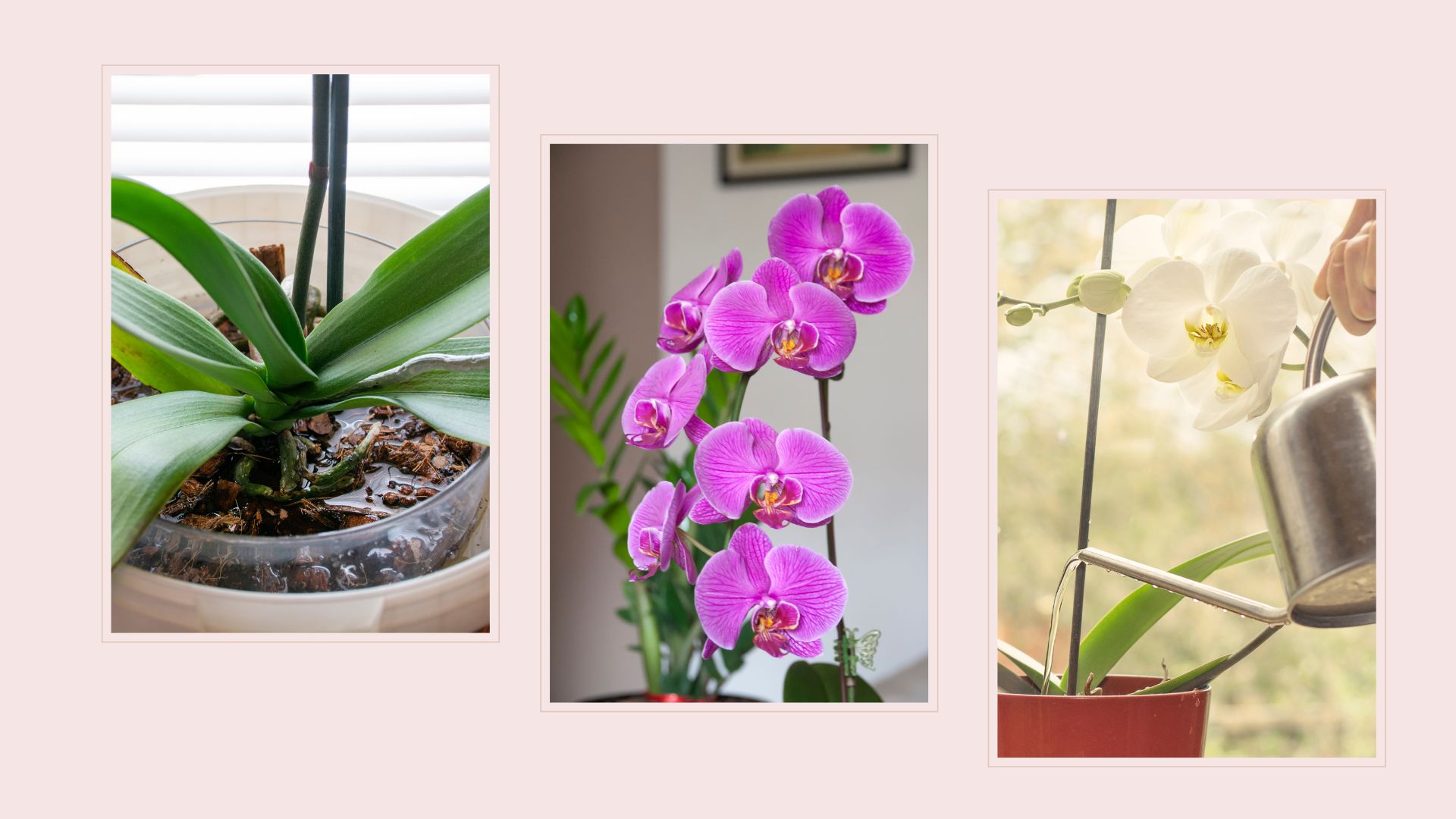

When caring for orchids, it can seem impossible to always keep the sensitive plant happy. Often an easier way to help the plant thrive is by knowing all the things you shouldn't be doing.
Knowing how to care for an orchid isn't a simple undertaking, it's regarded as one of the hardest houseplants to keep alive for a reason. While you might know what steps will keep your plant alive, knowing what things you should avoid is also helpful.
So if you're a new plant parent or have found yourself wondering why your orchid is turning yellow, here are all the things you shouldn't be doing when caring for this elegant plant.
The 5 things you should not do when caring for an orchid
Even if you've mastered your orchid watering routine, there will be times when the plant leaves you scratching your head. Whether it's begun to turn yellow or the blossoms have fallen off, sometimes it seems like this species is doomed no matter what you do.
So to avoid an unhappy orchid, we spoke to experts to find out what mistakes you might be making and why you should be avoiding them at all costs.
1. Overwater
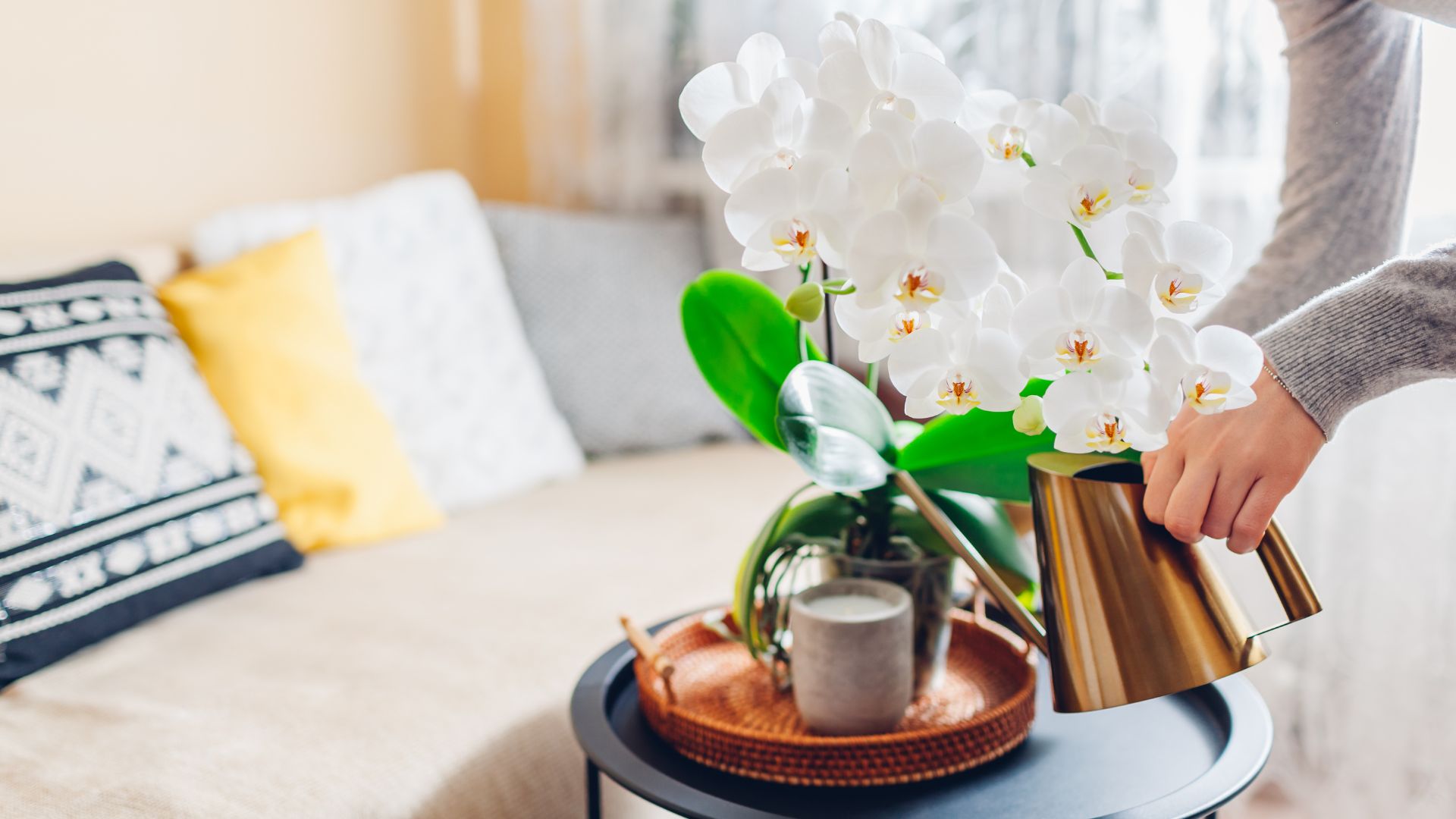
Knowing how often you should water your houseplants is a lot harder than you might think as each species needs to be watered in different amounts and at different times.
"Orchids are sensitive to excess moisture, so ensure the potting medium dries out slightly between waterings. Generally, water once a week, but adjust based on the humidity and temperature in your home," explains Petar Ivanov, plant and garden expert at Fantastic Gardeners.
Sign up to our free daily email for the latest royal and entertainment news, interesting opinion, expert advice on styling and beauty trends, and no-nonsense guides to the health and wellness questions you want answered.
It's not just your watering routine that you have to worry about too, Petar points out that most people will use tap water on their orchids when this can be harmful.
"Tap water can contain chemicals like chlorine and fluoride that may harm orchids, so use distilled or rainwater or let tap water sit out for 24 hours to allow chemicals to dissipate before use," he adds.

Peter has been a gardening and plant expert at Fantastic Gardeners for over 8 years, he is now one of the company's top-performing experts and manages over 6 teams of gardeners. He works on creating stunning landscapes and prioritises sustainability in his gardening methods.
2. Not provide enough drainage
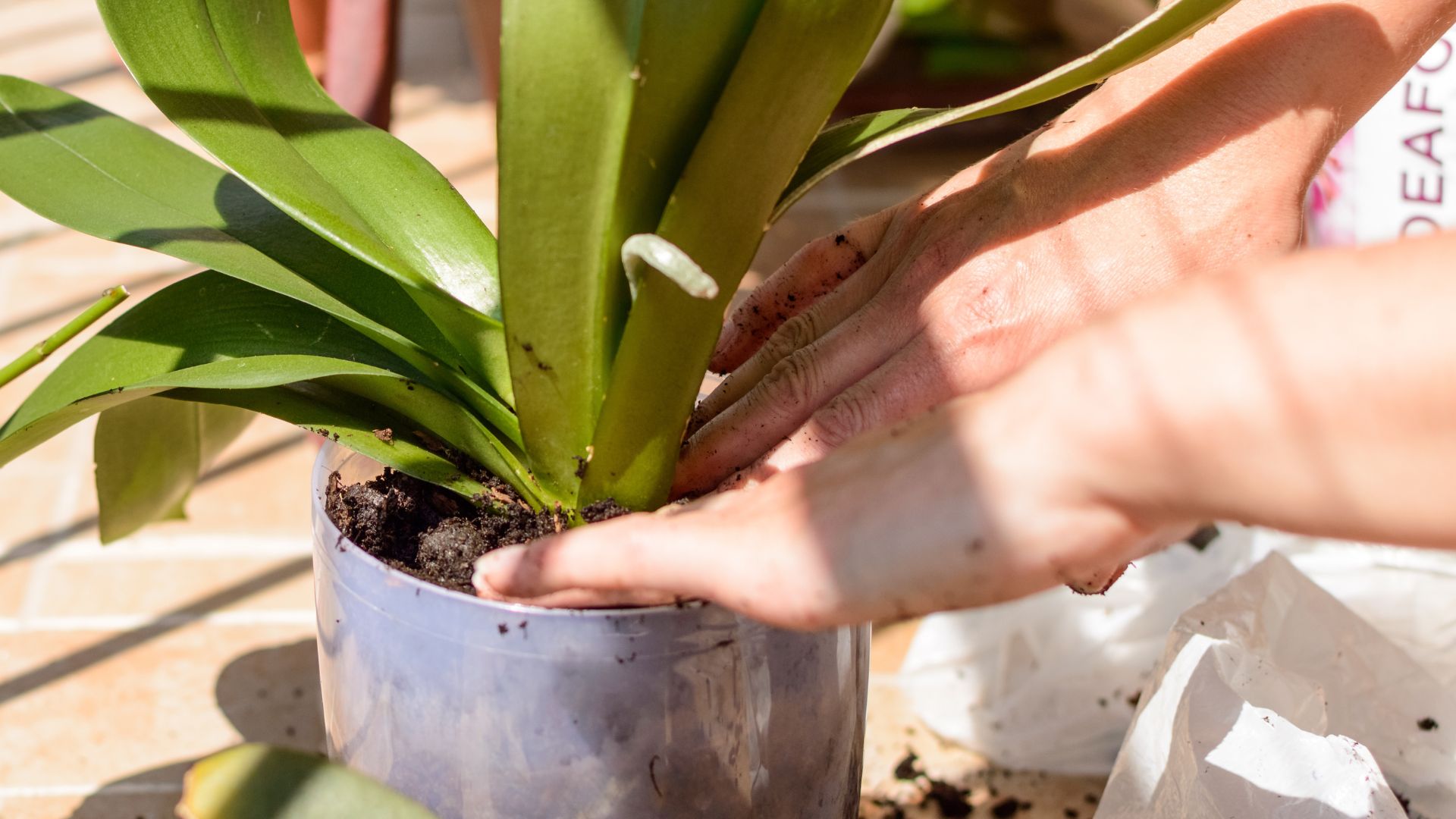
Drainage is an important part of plant care that is often overlooked, but it can lead to many issues like mould growing on your plants' topsoil. With orchids, drainage is particularly important for the plants' health.
Petar says, "Orchids need good drainage to prevent root rot, so use a well-draining potting mix specifically for orchids and ensure the pot has drainage holes."
He does however point out that you can't neglect humidity as orchids do thrive in humid environments. Petar explains, "If your home is dry, use a humidity tray or a humidifier to maintain adequate moisture levels around the plant."
Premium 1L Orchid Bark and & Perlite mix: £7.99 at Amazon
Looking for some replacement bark for your orchid? Or perhaps you didn't know the benefits until now, either way, this orchid bark from Amazon will provide your plant's roots an optimised environment. It's also been sterilised safely and comes in a reusable bucket!
3. Forgetting to prune and deadhead
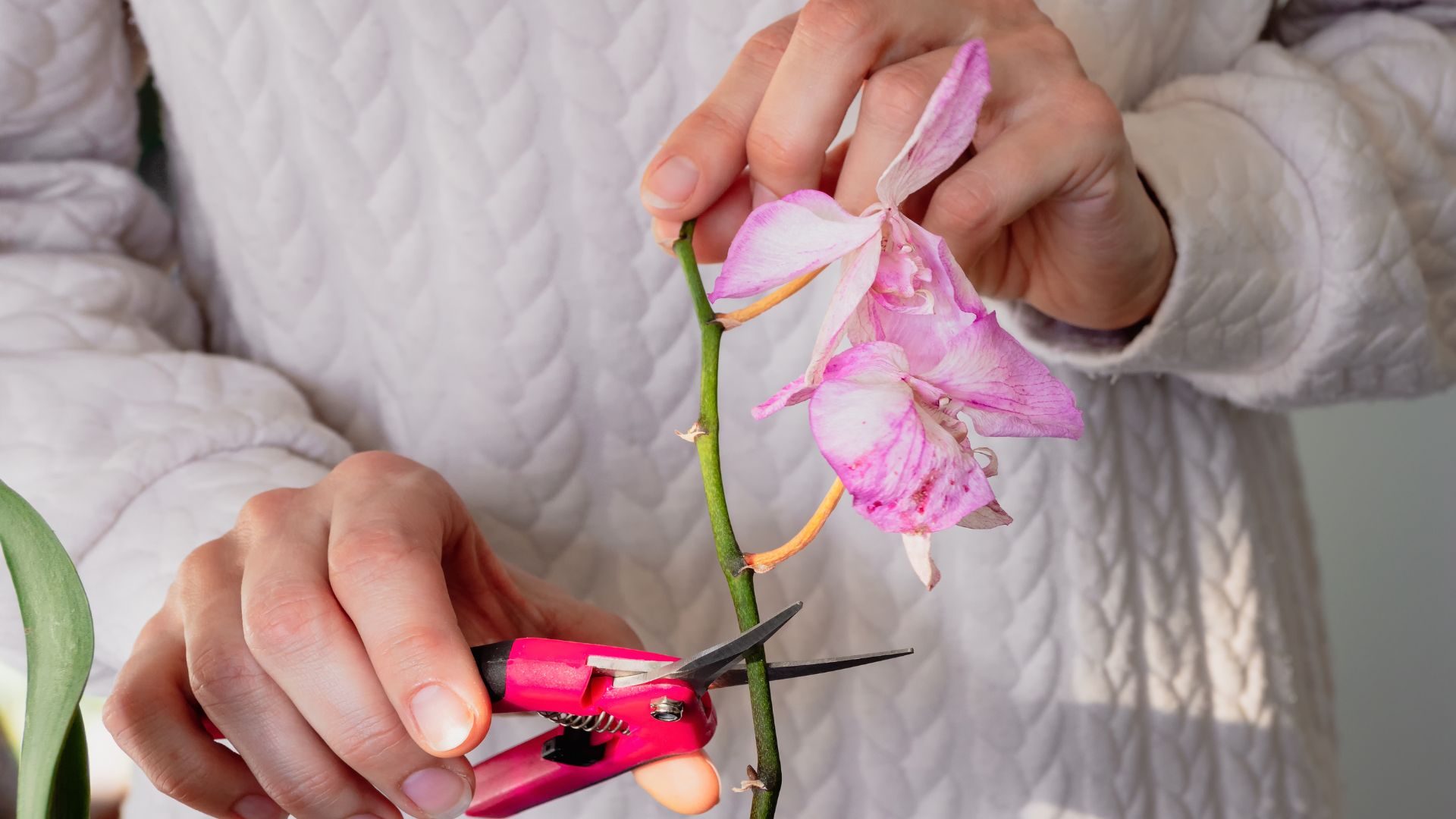
Whilst there are several plants you should never deadhead your orchid is not one of them. The plant will benefit massively from an occasional deadhead and pruning where necessary.
"Remove dead or spent flowers and any damaged leaves to encourage new growth and maintain plant health," says Petar.
By deadheading and pruning spent or dying flowers and foliage, you can also prevent any potential diseases from spreading to the healthy parts of your plant. Just make sure to do it as soon as you can see this happening as time really does matter when catching diseases or fungal infections.
Burgon & Ball Orchid Snips: £10.39 at Amazon
These orchid scissors are the perfect size for cutting back your plant after the blooms have fallen off. They have padded handles for comfort and are crafted in stainless steel so you won't have to worry about rust.
4. Wrong placement
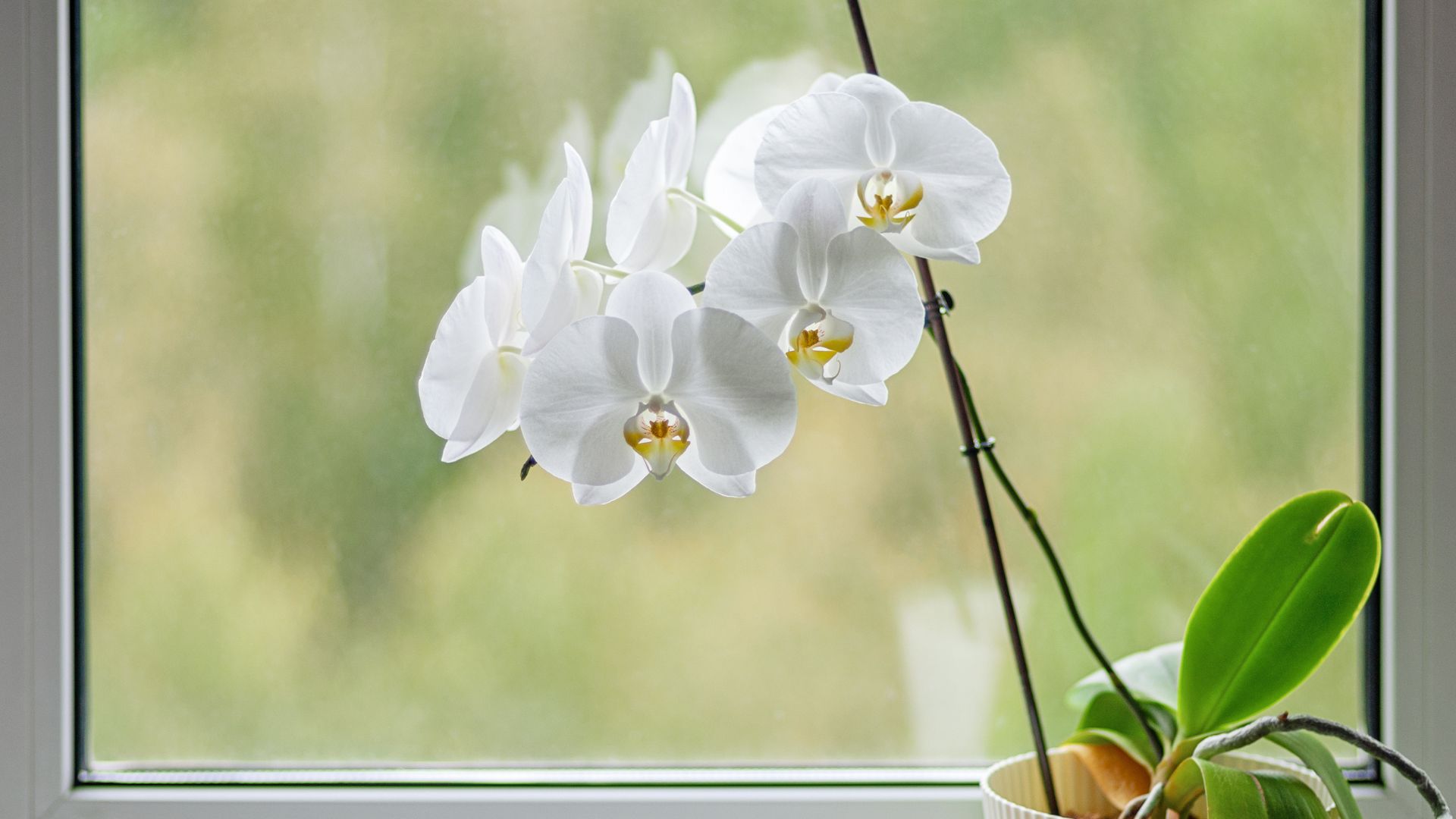
One of the most common houseplant mistakes is placing your plant in an inappropriate spot in your home where the conditions can be potentially harmful. Whilst plants undoubtedly need sunlight, too much can cause scorching and withering.
"Placement is vital as well," says Georgina O'Grady, plant expert and managing director at Evergreen Direct. "Many orchids are positioned in direct sunlight, leading to scorched leaves. A spot with bright, indirect light, like near a north-facing window, is ideal."

Georgina is an accomplished professional in the field of interior and exterior landscaping using plants, trees, and green walls. Georgina is currently serving as the Managing Director at Evergreen Direct.
5. Overfeeding
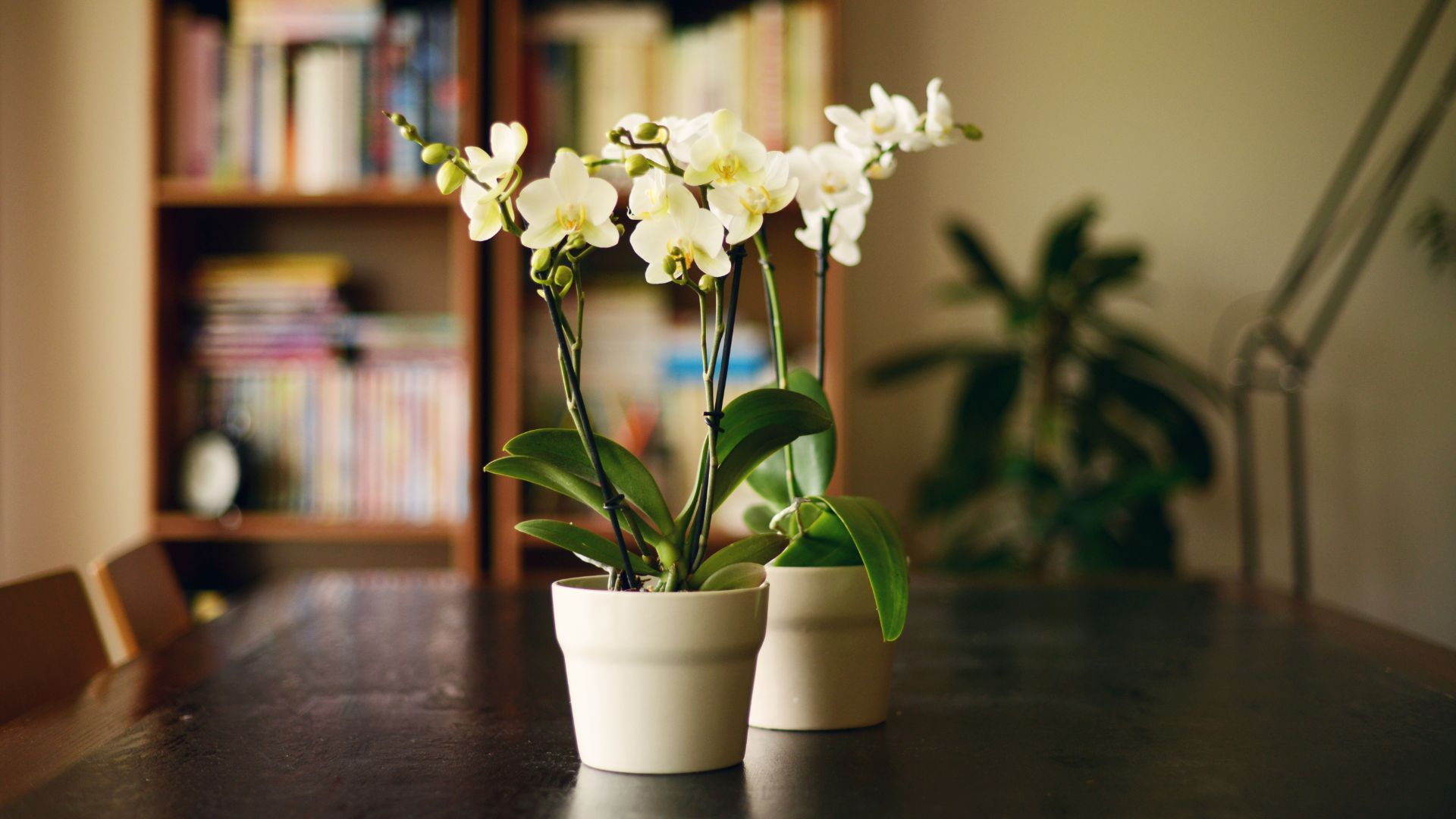
When it comes to how to care for indoor plants, you might not always consider feeding your leafy friends as a priority. But feeding your plants is key to your plants thriving, you just need to be careful not to overdo it.
"Feeding is another area where people often err. Many think that more fertiliser is better, but orchids need a balanced, diluted feed," explains Georgina.
"I suggest applying it every fortnight during the growing season and cutting back to once a month in winter. I trust brands that provide nutrients tailored for orchids,"
Doff 10 Pack Orchid Drip Feeders: was £8.32 now £7.09 at Amazon
If you find yourself forgetting to feed or accidentally overfeeding your orchid often then these drip feeders are the perfect solution. Each feeder lasts around 30 days so you'll have 10 months worth of care with this pack from Amazon.
FAQS
What is the most common mistake people make when caring for orchids?
Although watering and feeding are some of the most common mistakes to make when caring for your orchid. The actual most common is not knowing what exact type of orchid it is you're caring for.
Fiona Jenkins, plant expert at MyJobQuote says, "The type of orchid you have determines how you care for it but commonly people fail to check this, leading to poor plant health and a lack of flowering."
She points out that the majority of orchids available from online retailers and garden centres are moth orchids. So if you know where to buy plants online then the chances are you have a moth orchid, other varieties include tropical dancing ladies and oncidium orchids.
"Oncidium orchids prefer brighter light levels than moth orchids and are better suited to positioning in direct sunlight. Similarly, moth orchids often reflower on the same stem but oncidium don’t," Fiona adds.

With over 25 years of experience under her belt, Fiona is a trained gardener who offers advice and insight to several trade companies and homeowners. She has also been featured as a gardening expert for several publications.
If you're not up for the challenge of looking after orchids then opt for one of the easiest houseplants to keep alive. How to care for a snake plant will seem like an absolute walk in the park compared to orchid care.

Emily joined woman&home as a staff writer after finishing her MA in Magazine Journalism from City University in 2023. After writing various health and news content, she now specialises in lifestyle, covering unique cleaning hacks, gardening how-tos, and everything to help your houseplants thrive.
